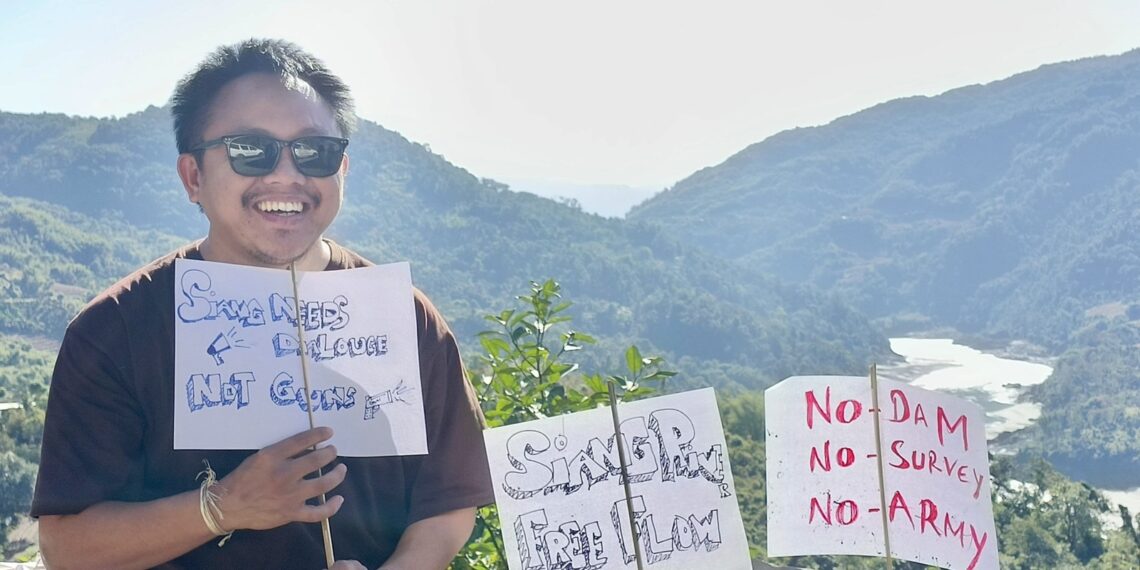A coalition of human rights defenders has appealed to the National Human Rights Commission (NHRC) to initiate suo motu proceedings into what they allege is a fabricated First Information Report (FIR) registered against Ebo Mili, a prominent environmental lawyer and anti-dam activist from Arunachal Pradesh.
In a formal communication addressed to Justice V. Ramasubramanian (Retd), Chairperson of the NHRC, the group has sought an independent inquiry into the events surrounding Mili’s participation in protests against the Siang Multi-Purpose Project (SMPP) in Siang district.
The letter, signed by Henri Tiphagne, National Working Secretary, alleges misuse of state power to silence dissent.
On May 22 and 23, Mili, who also serves as Convenor of the Siang Indigenous Farmers Forum (SIFF), led a peaceful protest in Begging village against a prefeasibility survey being conducted for the controversial hydroelectric project.
Local farmers and villagers joined the demonstration, voicing concerns over the potential environmental and cultural impact of the dam project.
However, on May 26, the Deputy Commissioner of Siang district, PN Thungon, directed the Officer-in-Charge of Boleng Police Station to take action against Mili.
The same day, an FIR was registered under multiple sections of the Bharatiya Nyaya Sanhita (BNS), 2023—including Sections 135, 191, and 324—as well as Section 4 of the Prevention of Damage to Public Property Act, 1984.
The FIR, which has been widely covered in regional media has raised serious questions among civil society organisations.
They argue that the charges appear retaliatory in nature and intended to criminalise peaceful protest and environmental activism.
ALSO READ: Arunachal Pradesh: Siang DC files complaint against activist Ebo Mili over anti-dam protest
Quoting the Protection of Human Rights (Amendment) Act, 2019, the appeal urges the NHRC to invoke Section 12(a) of the Act to take cognizance of the matter and launch an independent investigation through its own inquiry wing.
The signatories have expressed hope that the NHRC will act promptly and impartially to safeguard democratic rights and ensure that dissenting voices—especially those defending indigenous and environmental rights—are not muzzled through administrative overreach.















